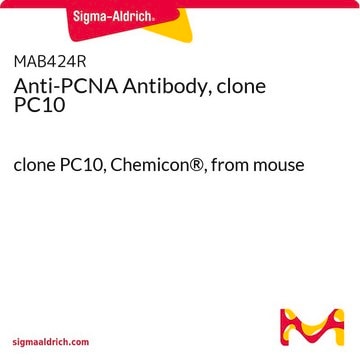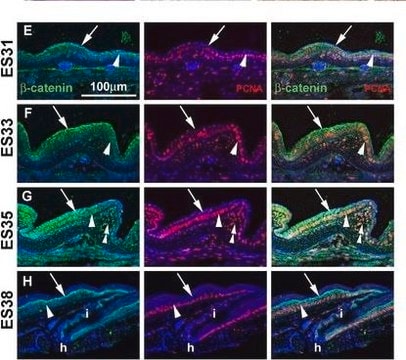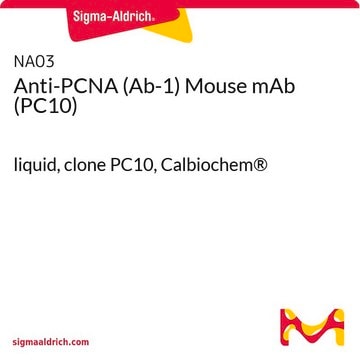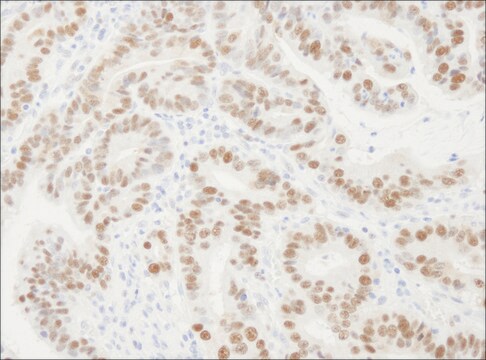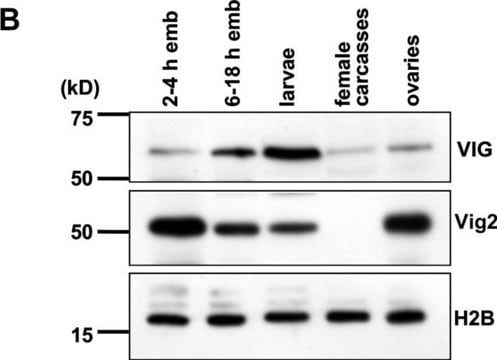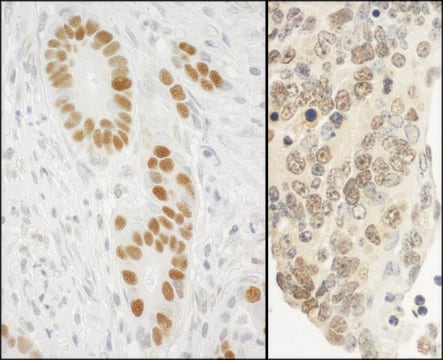MABE288
Anti-PCNA Antibody, clone PC10
clone PC10, from mouse
Synonyme(s) :
Proliferating cell nuclear antigen, PCNA, Cyclin
About This Item
Produits recommandés
Source biologique
mouse
Niveau de qualité
Forme d'anticorps
purified immunoglobulin
Type de produit anticorps
primary antibodies
Clone
PC10, monoclonal
Espèces réactives
human
Technique(s)
immunofluorescence: suitable
immunohistochemistry: suitable
western blot: suitable
Isotype
IgG2aκ
Numéro d'accès NCBI
Numéro d'accès UniProt
Conditions d'expédition
wet ice
Modification post-traductionnelle de la cible
unmodified
Informations sur le gène
human ... PCNA(5111)
Description générale
Immunogène
Application
Immunofluorescence Analysis: A 1:1,500 dilution from a representative lot detected PCNA in human lymph nodes and in human colon adenocarcinoma cells.
Epigenetics & Nuclear Function
Cell Cycle, DNA Replication & Repair
Qualité
Western Blot Analysis: 0.01 µg/mL of this antibody recognized PCNA in 10 µg of HeLa cell lysate.
Description de la cible
Forme physique
Stockage et stabilité
Remarque sur l'analyse
HeLa cell lysate
Autres remarques
Clause de non-responsabilité
Vous ne trouvez pas le bon produit ?
Essayez notre Outil de sélection de produits.
En option
Code de la classe de stockage
12 - Non Combustible Liquids
Classe de danger pour l'eau (WGK)
WGK 1
Point d'éclair (°F)
Not applicable
Point d'éclair (°C)
Not applicable
Certificats d'analyse (COA)
Recherchez un Certificats d'analyse (COA) en saisissant le numéro de lot du produit. Les numéros de lot figurent sur l'étiquette du produit après les mots "Lot" ou "Batch".
Déjà en possession de ce produit ?
Retrouvez la documentation relative aux produits que vous avez récemment achetés dans la Bibliothèque de documents.
Articles
Loading controls in western blotting application.
Notre équipe de scientifiques dispose d'une expérience dans tous les secteurs de la recherche, notamment en sciences de la vie, science des matériaux, synthèse chimique, chromatographie, analyse et dans de nombreux autres domaines..
Contacter notre Service technique
